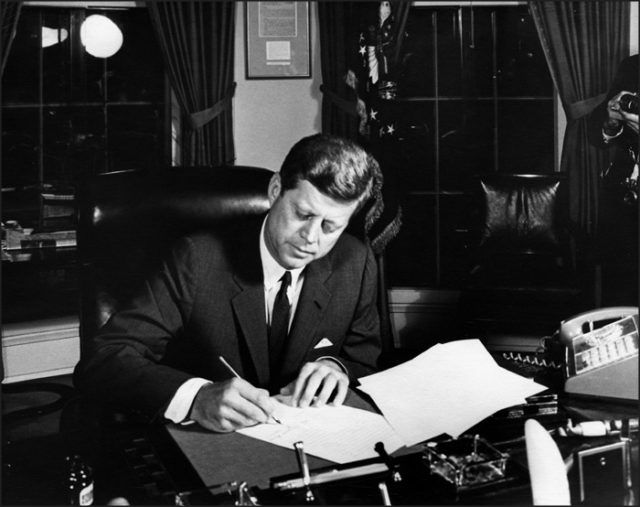Authors:
Historic Era: Era 9: Postwar United States (1945 to early 1970s)
Historic Theme:
Subject:
Winter 2010 | Volume 59, Issue 4


Authors:
Historic Era: Era 9: Postwar United States (1945 to early 1970s)
Historic Theme:
Subject:
Winter 2010 | Volume 59, Issue 4

Editor's Note: You can also read the original article by JFK published in early 1964 that we reprint here.
There is little that is more important for an American citizen to know than the history and traditions of his country. Without such knowledge, he stands uncertain and defenseless before the world, knowing neither where he has come from nor where he is going. With such knowledge, he is no longer alone, but draws a strength far greater than our own from the cumulative experience of the past and a cumulative vision of the future.
Knowledge of our history is, first of all, a pleasure for its own sake. The American past is a record of stirring achievement in the face of stubborn difficulty. It is a record filled with figures larger than life, with high drama and hard decision, with valor and tragedy, with incidents both poignant and picturesque, and with the excitement and hope involved in the conquest of a wilderness and the settlement of a continent. For the true historian—and for the true student of history—history is an end in itself. It fulfills a deep human need for understanding; the satisfaction it provides requires no further justification.
Yet, though no further justification is required for the study of history, it would not be correct to say that history serves no further use than the satisfaction of the historian. History, after all, is the memory of a nation. Just as memory enables the individual to learn, to choose goals and stick to them, to avoid making the same mistake twice—in short, to grow—so history is the means by which a nation establishes its sense of identity and purpose. The future arises out of the past, and a country’s history is a statement of the values and hopes which, having forged what has gone before, will now forecast what is to come.
As a means of knowledge, history becomes a means of judgment. It offers an understanding of both the variety and unity of a nation whose motto is E Pluribus Unum—out of many, one. It reminds us of the diverse abundance of our people, coming from all races and all parts of the world, of our fields and mountain ranges, deserts and great rivers, our green farmlands and the thousand voices of our cities. No revolution in communication or transportation can destroy the fact that this continent is, as Walt Whitman said, “a nation of nations.” Yet it also reminds us that, in spite of